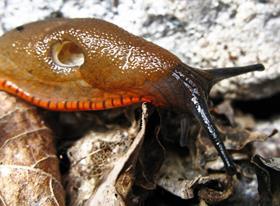
Potato growers will be banned from using slug pesticide metaldehyde in outdoor production from the spring of 2020.
The decision from Defra follows advice from theUK Expert Committee on Pesticides (ECP) and the Health and Safety Executive (HSE) that the chemical poses an unacceptable risk to birds and mammals.
As well as potatoes, slugs are a troublesome and damaging pest in a range of other crops, including cereals and oilseed rape, but Defra stressed that growers have alternatives.
Growers can instead sow seeds deeper in the soil to prevent slugs from reaching them, the government department said, or they can use alternativepesticides containing ferric phosphate which provide effective control of slugs and snails without carrying the same risks to wildlife.
“I recognise that significant effort has been put into encouraging growers and gardeners to use this pesticide responsibly by the Metaldehyde Stewardship Group,” said Defra secretary Michael Gove said. “However, the advice is clear that the risks to wildlife are simply too great – and we must all play our part in helping to protect the environment.
“I encourage companies and growers to look at the alternatives, such as ferric phosphate, which is authorised and does not carry similar risks.”
The outdoor use of metaldehyde will be phased out over the next 18 months to give growers time to adjust to other methods of slug control.
It will be legal to sell metaldehyde products for outdoor use for the next six months, with use of the products then allowed for a further 12 months.
The NFU said the ban represented a “big blow” to British farmers and growers, citing an AHDB study that estimated that a lack of slug control products could cost UKcrop production £100 million a year.
“These products have been reauthorised for use in 21 EU member states and this ban is another decision that will have an impact on food production in this country,” said NFU deputy president Guy Smith.
“It simply gifts a competitive advantage to farmers abroad who will export into our markets using crop protection materials banned in the UK.
“Slugs are a significant pest for agricultural and horticultural crops like oilseed rape, cereals and potatoes which, if left unchecked, can cause considerable damage. The Agriculture and Horticulture Development Board has estimated that a lack of slug control products could cost UK crop production £100 million a year.
He added: “Metaldehyde products play a key role as part of an integrated approach to slug control. Farmers are acutely aware of the need to use these products judiciously and to ensure their use has minimal impact on the environment…Farmers and growers already use a holistic approach to slug control to keep the use of slug pellets to a minimum.”
Smith also warned that while ferric phosphate can be used as an alternative slug control treatment, slugs could develop resistance to it, as seen in other instances when growers have been left to rely on just one active ingredient.
The government, for its part, offered additional justification for the ban, arguing thatnew restrictions on the chemical will also reduce the possibility of it contaminating drinking water sources.
Although this was not a factor in the advice from the ECP and the HSE, Defra said the restrictions will help water companies continue to meet drinking water standards.



